When to plant blueberries for bumper crops of nutritious berries
Find out the best time to plant these delicious fruits and which blueberry varieties will grow best in your yard

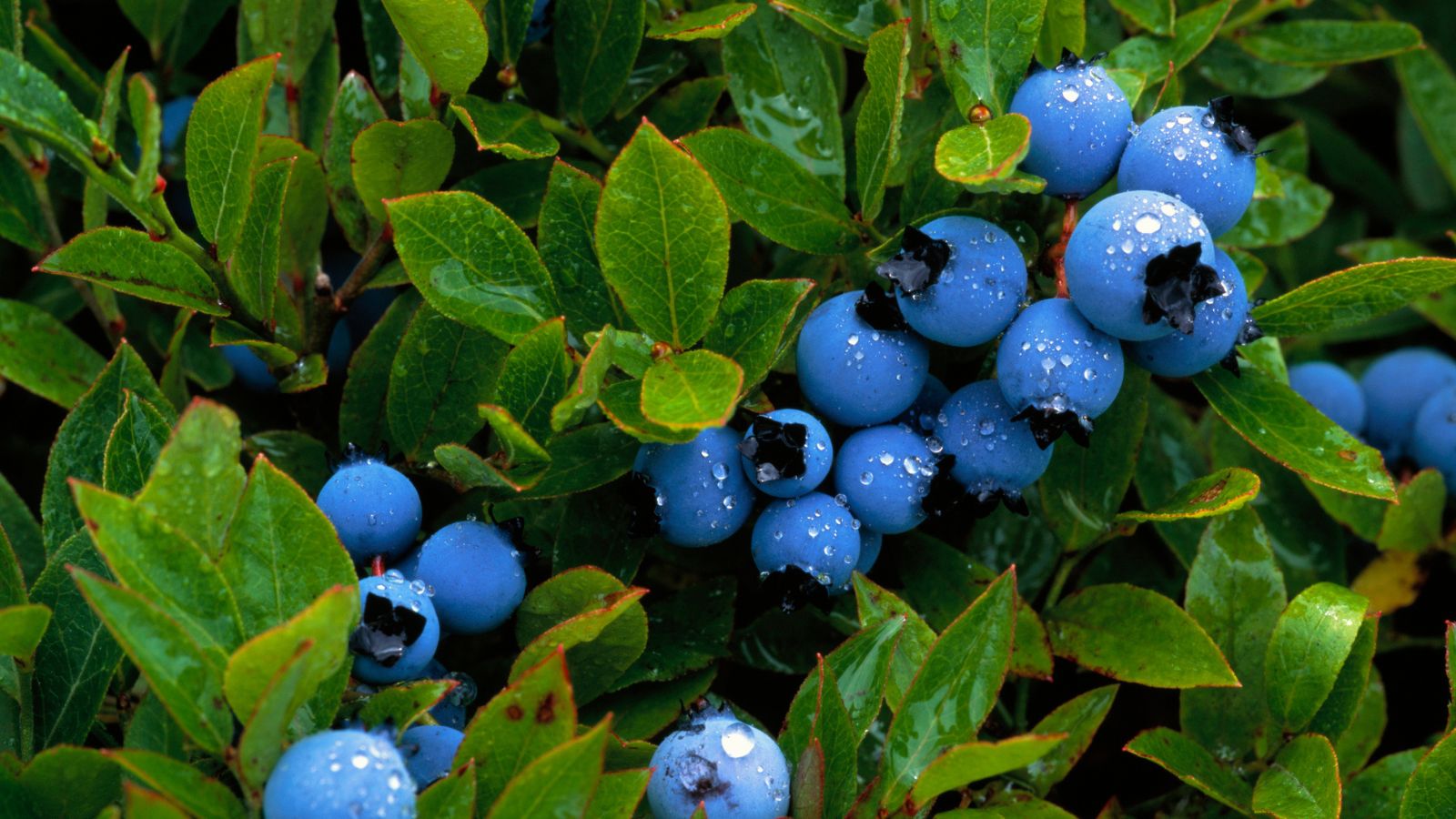
Design expertise in your inbox – from inspiring decorating ideas and beautiful celebrity homes to practical gardening advice and shopping round-ups.
You are now subscribed
Your newsletter sign-up was successful
Want to add more newsletters?

Twice a week
Homes&Gardens
The ultimate interior design resource from the world's leading experts - discover inspiring decorating ideas, color scheming know-how, garden inspiration and shopping expertise.

Once a week
In The Loop from Next In Design
Members of the Next in Design Circle will receive In the Loop, our weekly email filled with trade news, names to know and spotlight moments. Together we’re building a brighter design future.

Twice a week
Cucina
Whether you’re passionate about hosting exquisite dinners, experimenting with culinary trends, or perfecting your kitchen's design with timeless elegance and innovative functionality, this newsletter is here to inspire
Sweet and nutritious, blueberries are one of the nation’s favourite fruits, and learning how to grow them is easier than you may think.
Packed with vitamins, antioxidants and fiber, the humble blueberry is known as a superfood, and plants have long been used by Native Americans for their medicinal value as well as their delicious taste. So, when is the best time to plant blueberries? Well, if you want a crop of your own, now is a great time to get started.
When to plant blueberries for burgeoning fruit crops
Expert advice on how to select the best blueberry plants for yard and when to plant them.
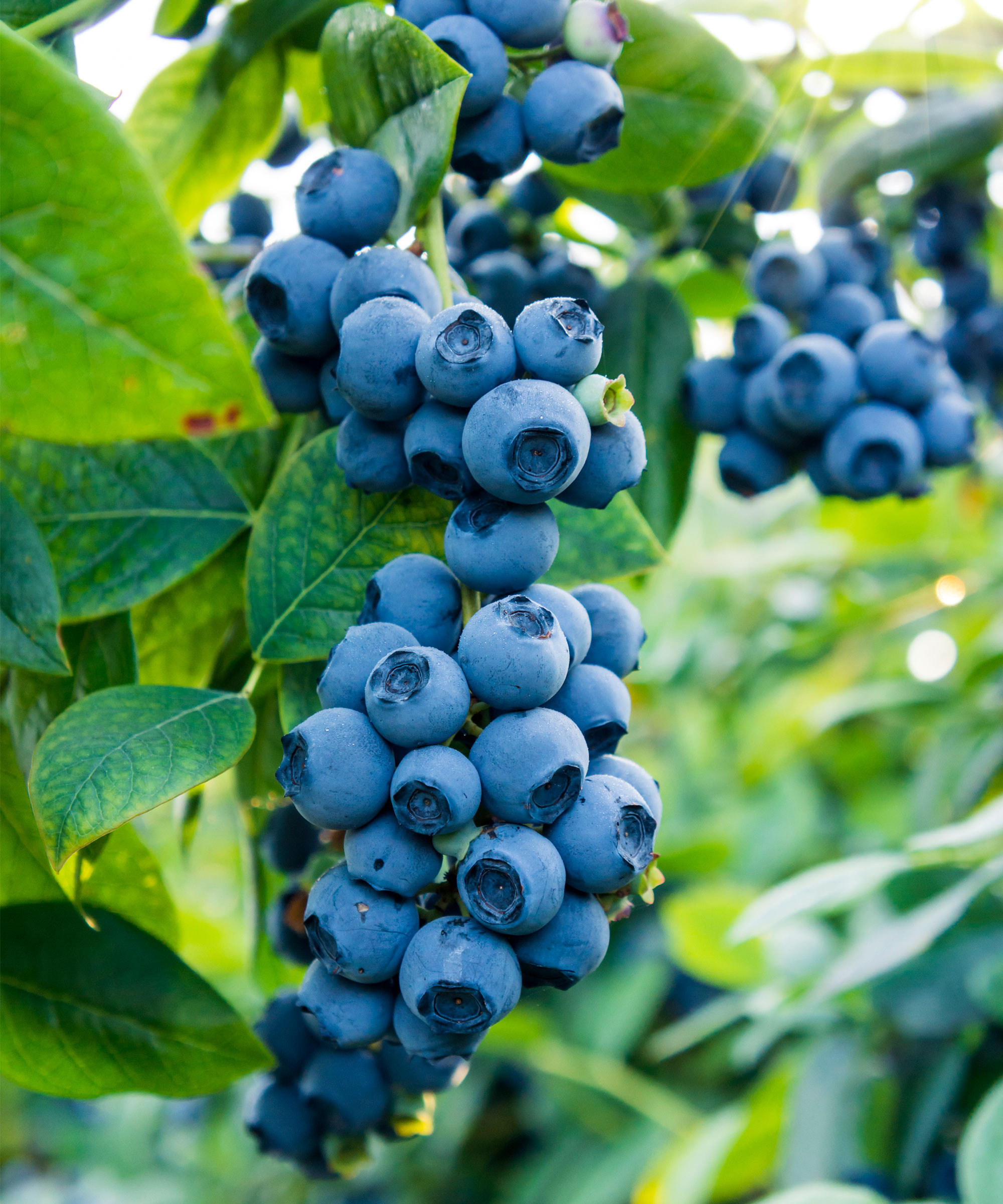
Selecting the right plants
Blueberries are US natives and grow well throughout the country, but the best varieties for your yard will be determined by where you live. The most commonly cultivated forms are highbushes, which have been bred from the species Vaccinium corymbosum. The northern highbush is native to eastern areas of the US and the best option for those living in cold climates. It is also self-fertile but growing two or more will usually increase the size of your crop.
Laura Sweany, a horticulturist at Raintree Nursery, which offers a wide selection of blueberry plants, says 'Northern highbushes also have an upright habit that makes them easy to harvest.'
The southern highbush was bred for warmer climes, and crops well in southern states that don’t experience the cold winters needed by the northern types to produce fruit the following summer. They are also self-fertile. 'Southern highbush blueberries are a good choice for growing in pots and containers, as well, due to their ability to thrive in a hotter, drier growing environment,' adds Laura.
Another option for warmer areas is the 'rabbiteye' blueberry, which delivers a higher tolerance of heat and grows well in a greater range of soil types. Rabbiteyes tend to be smaller than highbushes, but you will need more than one plant to guarantee a good harvest.
Design expertise in your inbox – from inspiring decorating ideas and beautiful celebrity homes to practical gardening advice and shopping round-ups.
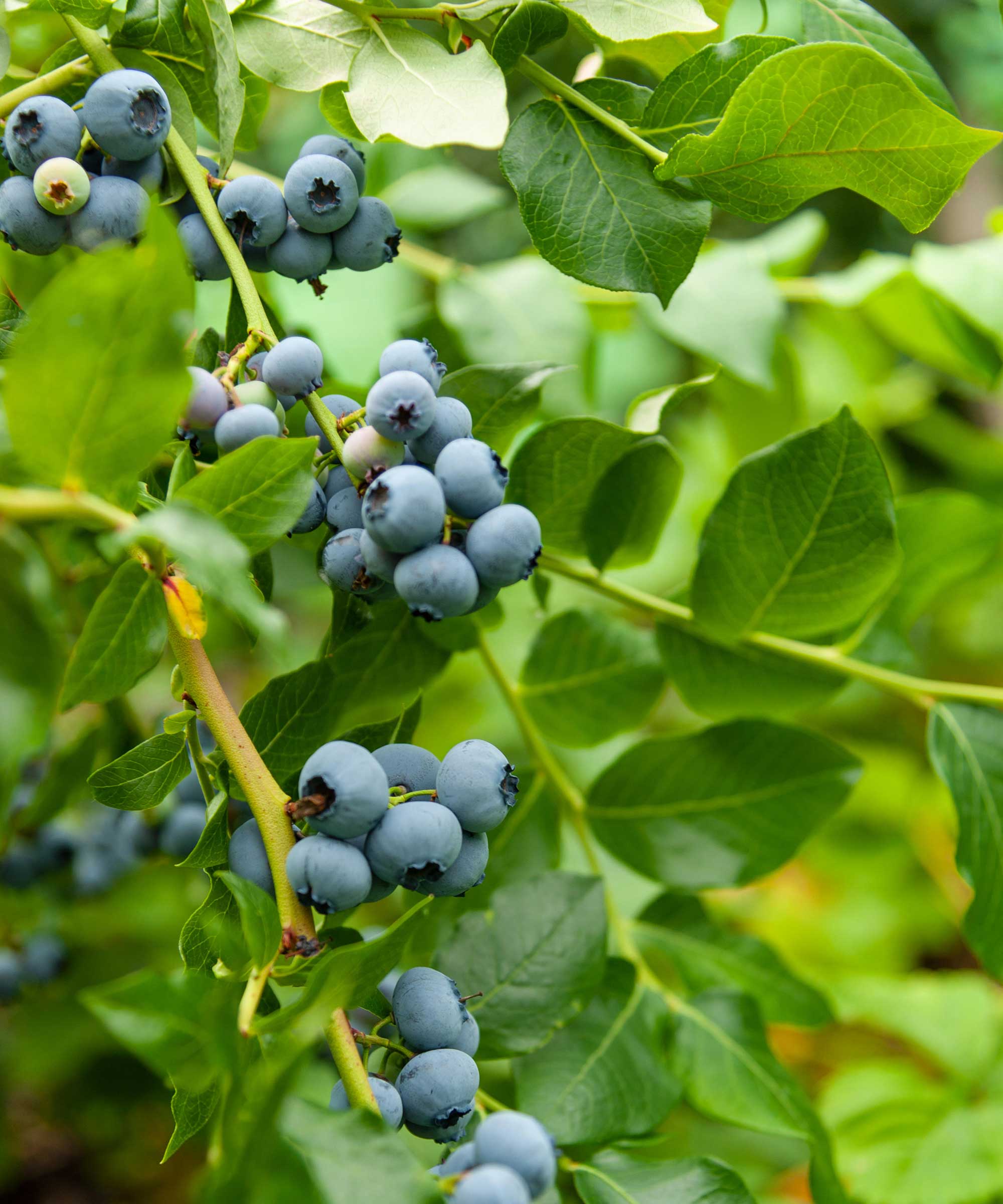
Perfect pollination
You can select cultivars that fruit at different times from summer to autumn, so consider growing a few varieties for a longer harvest. Another benefit is that blueberry plants are highly ornamental and make great landscaping plants, producing white to pink urn-shaped blooms in spring and bright red fall leaf color.
'Blueberry bushes typically require some form of pollination,' advises Laura Sweany. 'And while many blueberries are partially self-fertile, some are not, and cross-pollination with a partner plant of a different variety will greatly increase the size, quantity, and quality of your blueberry harvest.'
Pollinators also need to fly between the bushes so plant them no further than 50ft apart, Laura says.

Laura Sweany is a horticulturist at Raintree Nursery in Morton, Washington, which offers a vast variety of blueberry plants. She has many years' experience in food systems, urban agriculture and sustainability, and is a pioneer in the field of urban food production and green development fields.
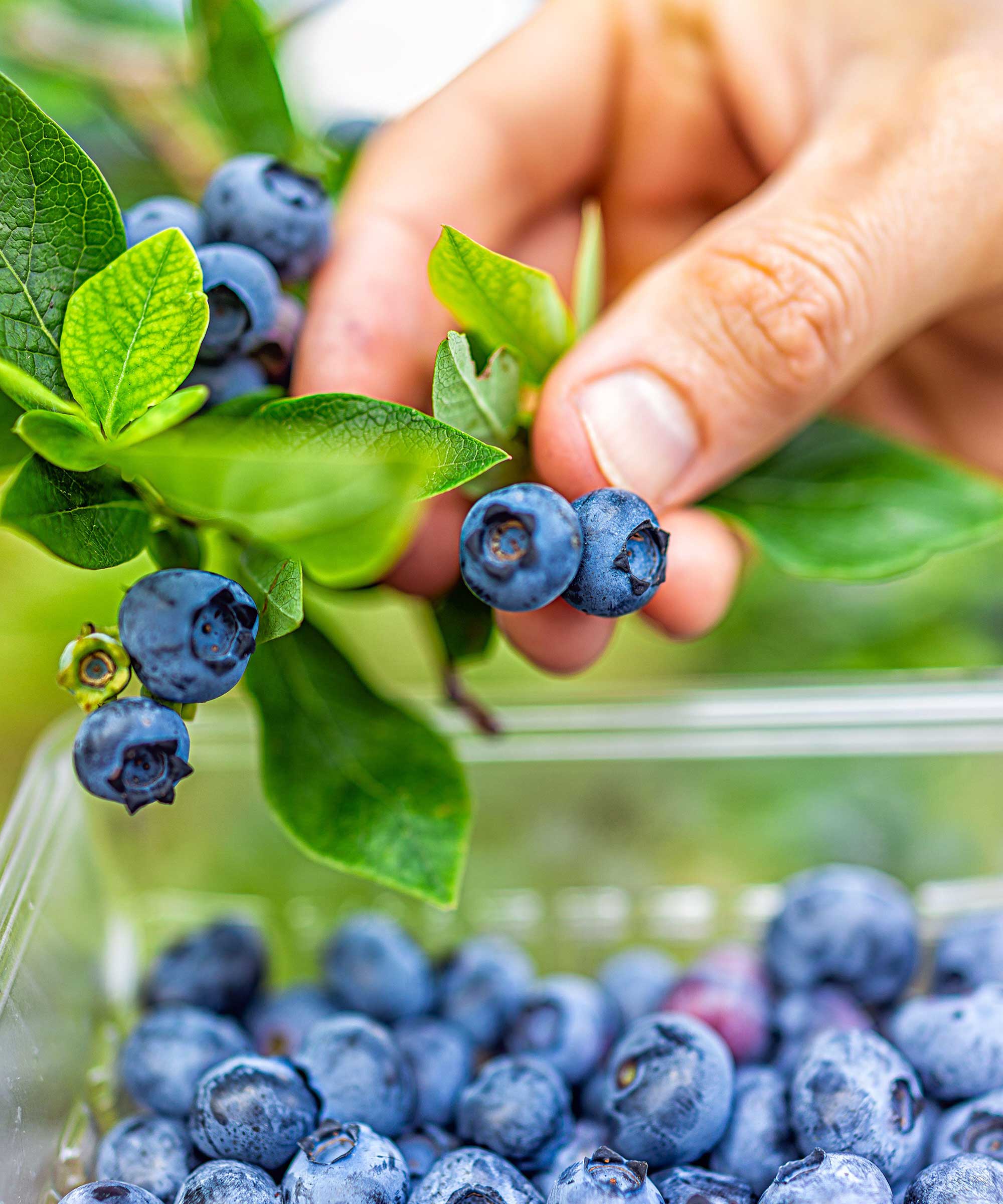
The best planting times
The US Highbush Blueberry Council recommends planting blueberries in the fall or early spring. Plants are hardy to USDA Zones 4–9 and the northern highbushes will come through even harsh winters.
The Council also suggests planting them 'as close as 2 or 2.5 ft apart to form hedgerows, or space them up to 6 ft apart so they grow individually. If you plant in rows, allow 8 to 10 ft between the rows.'
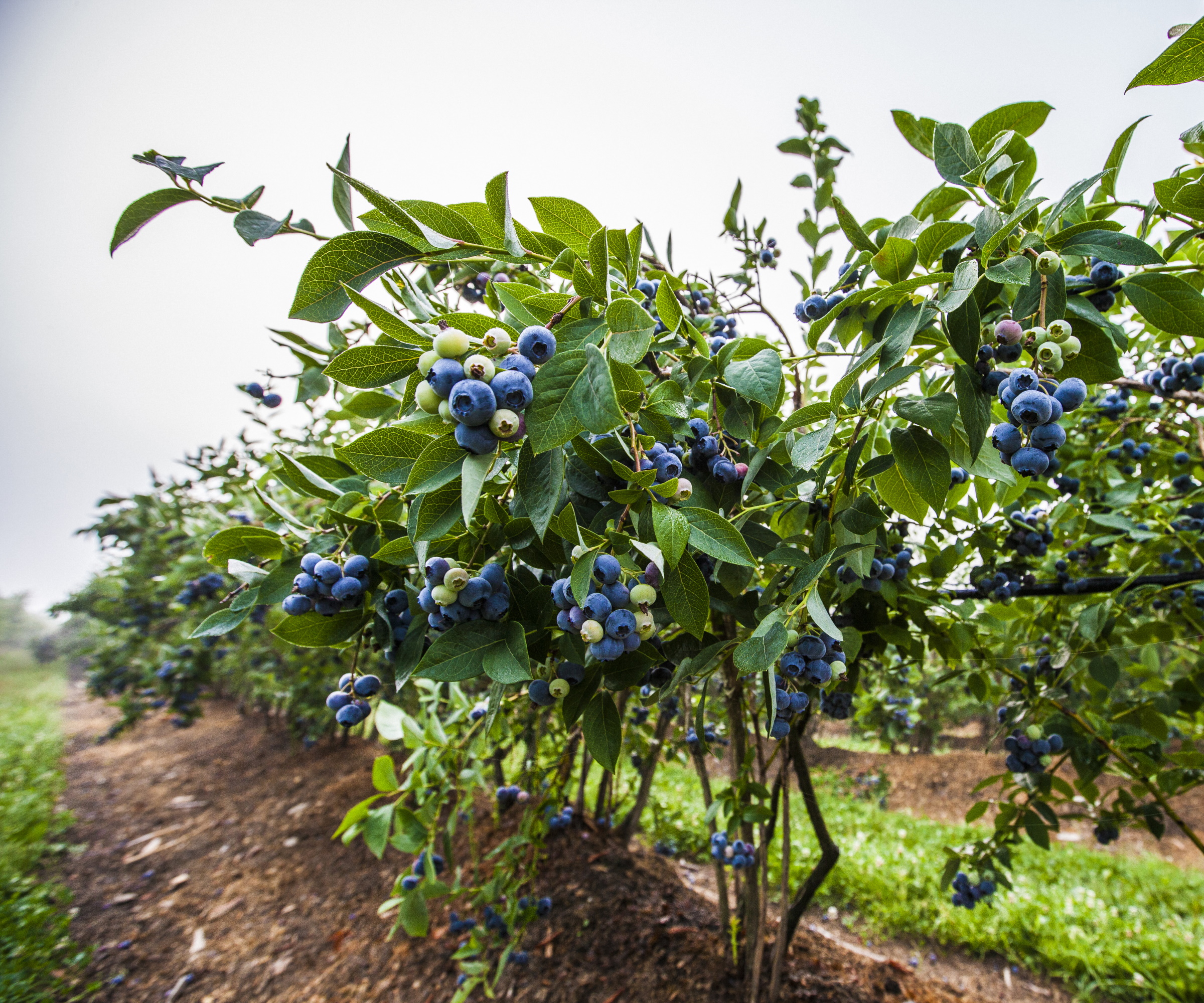
Down to earth
Before buying a blueberry plant, check that your soil pH will suit its needs. The pH is a measure of a soil’s acidity or alkalinity, and blueberries generally like acidic conditions, although Rabbiteye blueberries are more forgiving if your soil is neutral. You can buy a soil pH testing kits like this one from Amazon.
These shrubs also like free-draining soil that holds some moisture but is not prone to waterlogging. If your soil conditions don’t quite fit the bill, simply grow your fruit bushes in large containers or raised beds filled with ericaceous (acid) potting mix.
Laura Sweany recommends a site where plants will receive at least 6–8 hours of direct sunlight from late June to early August. 'Sufficient sun exposure triggers the initiation of new flower buds for the next growing season,' she says.
FAQs
Are blueberries easy to grow?
Blueberries are easy to grow, but success requires patience. The key thing is to plant them in acidic soil or ericaceous compost, and water regularly with rainwater until established.
How do I protect blueberry crops from birds?
Birds love blueberries as much or more than we do, so if you want to enjoy your crops before they’re whisked away, add some protection. The most effective method is to create a framework around the plants with canes or wooden posts and covering it with chicken wire or bird-proof netting. Alternatively, buy a fruit cage.
It's clear there are a lot of alternative blueberry varieties to choose from, so it would be a good idea to start by thinking about your climate and testing your soil. Once plants are established, it's also useful to know when to prune a blueberry bush and when best to fertilize them to maintain optimum fruit yields.

Zia Allaway is a garden book author, editor, and journalist, and writes for a range of gardening and women’s magazines, including Easy Gardens, Homes & Gardens and Livingetc, as well as The Guardian and The Daily Telegraph newspapers. She has also written books for the Royal Horticultural Society and Dorling Kindersley publishers, including Eco-Gardening, Compost, Low Maintenance, Practical House Plant Book, Practical Cactus & Succulent Book, Indoor Edible Garden, What Plant Where, and the Encyclopedia of Plants and Flowers.